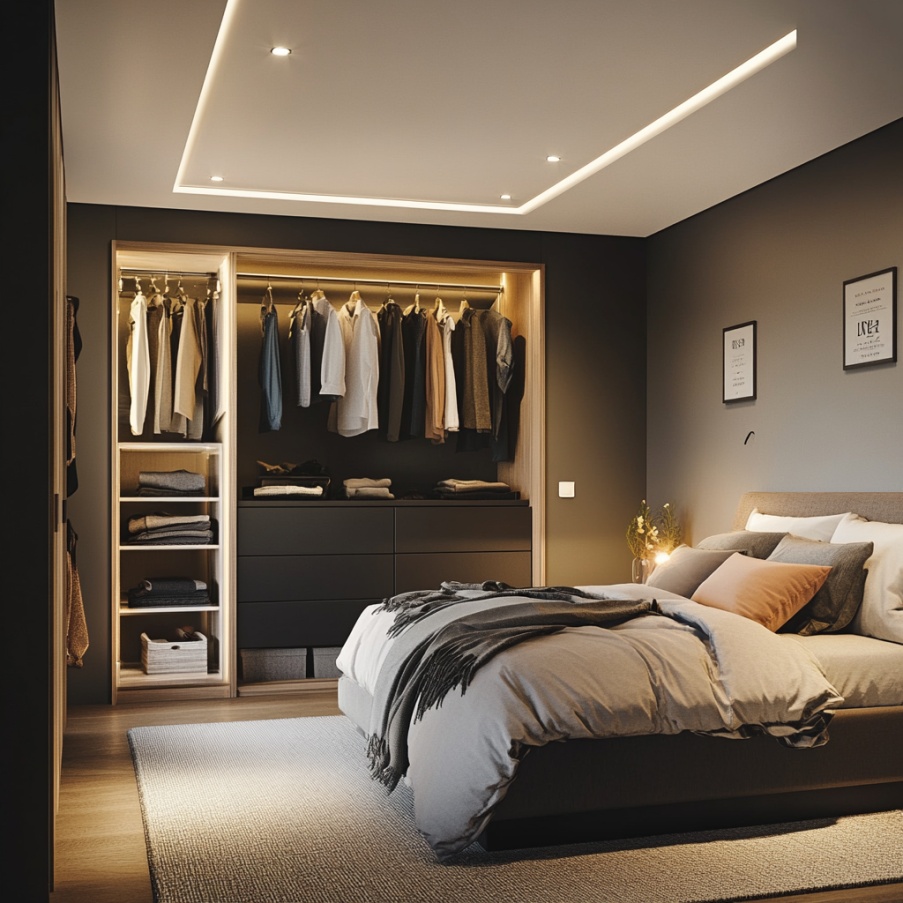Blogs
Do LED Lights Affect Sleep Quality Due to Blue Light?
In today’s modern world, LED lighting has become a staple in homes, offices, and even streetlights. While LEDs are energy-efficient and long-lasting, concerns have been raised about their impact on sleep quality due to blue light exposure. But how exactly does blue light affect sleep, and what can you do to minimize its impact?
Understanding Blue Light and Its Effects on Sleep
LED lights, especially those with cool white or daylight color temperatures, emit a significant amount of blue light. Blue light is a short-wavelength, high-energy light that plays a crucial role in regulating our circadian rhythm—the body's internal clock that dictates sleep and wake cycles.
Exposure to blue light, especially in the evening, suppresses the production of melatonin, a hormone responsible for making us feel sleepy. When melatonin levels are disrupted, it becomes harder to fall asleep and stay asleep, leading to poor sleep quality and potential health issues over time.

Sources of Blue Light in Daily Life
While LED bulbs contribute to blue light exposure, they are not the only sources. Other common sources include:
Smartphones, tablets, and computer screens
Televisions
Fluorescent lights
Sunlight (the primary natural source of blue light)
Because we are constantly exposed to these sources, it is essential to be mindful of their impact on our sleep patterns.
How to Reduce Blue Light Exposure for Better Sleep
If you're concerned about LED lights affecting your sleep quality, here are some practical solutions:
1. Use Warm or Dimmable LED LightsOpt for warm white LEDs (2700K–3000K) in bedrooms and relaxation areas. These emit less blue light and create a cozier atmosphere conducive to sleep.
2. Limit Screen Time Before BedReduce screen exposure at least an hour before bedtime. If you must use screens, enable night mode or blue light filters on your devices.
3. Wear Blue Light Blocking GlassesSpecial glasses with blue light filters can help mitigate the effects of prolonged exposure, especially for those who work late on computers.
4. Install Smart LightingSmart LED bulbs with adjustable color temperatures allow you to switch to warmer tones in the evening, reducing blue light exposure before bed.
5. Use Blackout Curtains and Eye MasksEven artificial light from street lamps can contribute to sleep disruption. Blackout curtains can help maintain a dark sleeping environment.
Conclusion
While LED lights provide numerous benefits, excessive exposure to blue light—especially at night—can negatively impact sleep quality. By making simple adjustments, such as choosing warmer LEDs, reducing screen time, and utilizing blue light filters, you can improve your sleep and overall well-being.
If you're looking for LED lighting solutions that balance efficiency and sleep-friendly features, explore our range of warm-toned and dimmable LED strips designed to create a comfortable nighttime environment.
RELATED NEWS
- Are Daylight LEDs Too Bright for a Living Room?Are Daylight LEDs Too Bright for 2025-04-17
- How Do I Choose the Right LED Strip for Under-Cabinet Lighting? 2025-04-17
- Why Do My LED Lights Flicker Even When Using a Dimmer? 2025-04-10
- How Do I Know If My LED Strip Is Getting Enough Power? 2025-04-10
- How Much Energy Can You Save by Switching to LED Lights? 2025-04-03
CATEGORIES
LATEST NEWS
CONTACT US
Contact:
Phone:
E-mail: jessica@ledfocus.cn
Whatsapp:
Add: 983-984, Building B, Qinghu Industrial Park, Qingxiang Road, Qinghu Community, Longhua Street, Longhua District, Shenzhen, China